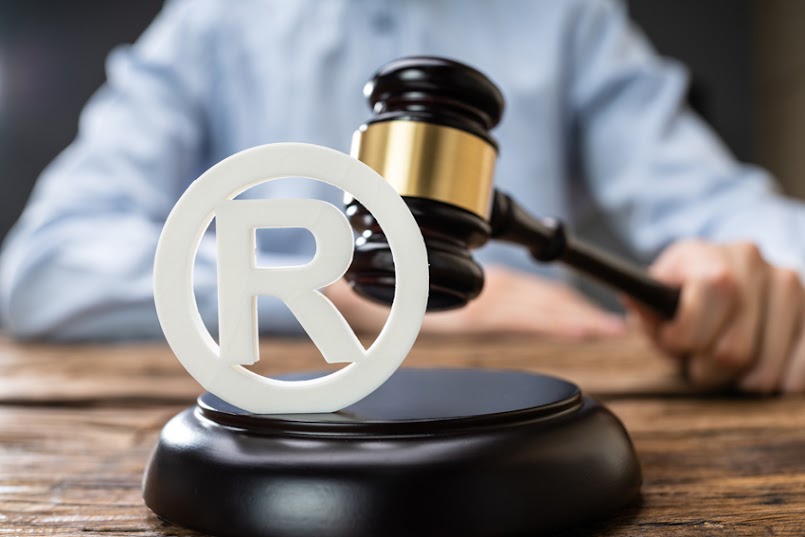When a Musician or Artist Should File for Copyright Protection
 |
| An artist can have their music registered within 3 months. |
While some of these kinds of sounds may make you want to grab your ears and beg for quiet, some melodious music can make even the most cynical person wish that the human ear could experience an even wider spectrum of sound.
However, irrespective of one's subjective feelings regarding a particular sound or song, the creator or creators of all types of music regularly seek to ensure that the law protects the fruits of their labor from commercial and artistic exploitation.
For the artist, what starts as an original idea of musical notes and lyrics eventually flows to a tangible medium of expression such as paper-the "musical composition"-and then bursts from the belly of instruments to a medium for recordation known as the "sound recording."
These two instrumental components of a musical idea combine and create the anatomy of a legally protectable song. This evolving idea has become "fixed" on these tangible mediums of expression and the United States Constitution entitles the artist to immediately register their fixed idea to prevent all others from using it without their consent. This area of the law is called copyright and grants a limited duration monopoly to encourage innovation in the world of creative expression by granting an exclusive right to perform, reproduce, sell, advertise, and promote your art.
Exclusivity of artistic and commercial control is a beautiful thing; but, like all good things, it must come to an end. This end will most likely not arise until 70 years after the creator's death or 95 years after the first publication-or the first public distribution-of the new song depending on whether the author is named, anonymous, pseudonymous, etc. In other words, you are considered the owner of your musical composition and recording for a sufficient, yet definite period of time.
To ensure that your legal status as the rightful owner of your musical composition and recording continues without interruption, registration with the United States Copyright Office ("Copyright Office") is a necessity.
Copyright Protection
While copyright ownership vests immediately with the artist the moment the song is written down or recorded, registration of the copyright provides greater protection in court when faced with trying to establish ownership of your interests in a song. For just $35.00, an artist can effectively have their music registered within three months. A streamline application allows for the registration of both the musical composition and sound recording for one fee.
While a song's composition and sound recording make up the anatomy of a song, producing, publishing, and licensing agreements can be likened with exercising the body of the song by seeking to increase productivity. Once an artist's registration process is complete, there are plenty of agreements to consider. It is likely that the artist was not in charge of writing the music, recording the music and producing the music simultaneously.
This process often involves music producers who seek to maximize the creative aspects of an artist's work and handle various administrative tasks associated with recording the music in the first place. Artists should be aware of the different forms of compensation generally given to producers such as granting them royalties on the albums sold or granting a one time flat fee for all of their work.
Also, licensing agreements can be great revenue-generating agreements that allow others use of your song, either in a movie, TV show, or commercial, for a limited period of time with your consent. Licensing agreements can be lucrative and also work to promote the artist's music simultaneously.
However, acquiring licensing opportunities is not as easy as it sounds. Most artists remain focused on the creative aspect of their music rather than the business aspect. Due to this fact, music publishing agreements between an artist and a music publisher generally call for a transfer of ownership of the artist's copyright in their music in exchange for the publisher promoting and soliciting different types of revenue-generating deals for the artist. The proceeds of these deals are then split between the publisher and the artist.
These post copyright registration considerations are complex and require a greater deal of attention than the brief descriptions above. Please check back with us and read our next post for more information on the complexities of music producing, licensing, and publishing.
Fran Perdomo, Esq.
NYC Entertainment Lawyer
Perdomo Law
The content of this blog has been prepared by Perdomo Law for informational purposes only and should not be construed as legal advice. The material posted on this website is not intended to create, and receipt of it does not constitute, a lawyer-client relationship, and readers should not act upon it without seeking professional counsel. Perdomo Law did not produce and is not responsible for the content of off-site legal resources. The materials on this site may constitute advertising under various state ethics rules.



Comments
Post a Comment